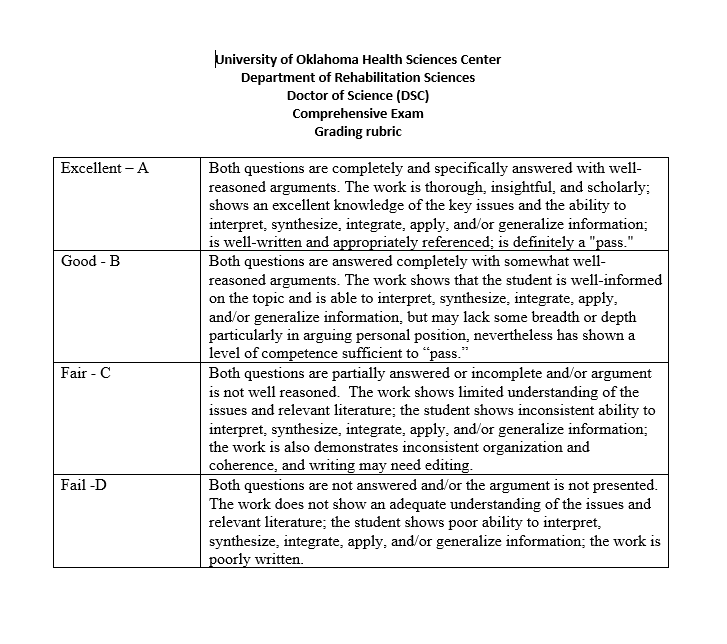The purpose of the comprehensive examination is for students to demonstrate mastery of knowledge gained from courses taken during their program of study. Mastery of knowledge is demonstrated by the student’s ability to analyze, synthesize, integrate, apply, generalize, and expand upon this knowledge. The written examination is intended to assess the student’s ability to engage in and display original thinking, and to integrate ideas in a coherent and critical manner.
Students complete a comprehensive examination in the semester following the successful completion of all core courses and at least 85% of other course credits (except for the Doctoral Thesis). Students are allowed up to 48 hours to complete the examination. Students who take the examination during the fall or spring semesters will take the exam from noon Saturday (Central time) to noon Monday (Central time) the weekend following the fifth week of classes. Students who take the examination during the summer semester will take the exam from noon Saturday (Central time) to noon Monday (Central time) the weekend following the second week of classes.
The questions will cover content from DSc degree program courses. The questions will be broad enough to:
- allow synthesis and integration of information from at least three courses in the program of study;
- require the student to critically think about a problem and respond to the question;
- challenge the student to use multiple sources of information and present a comprehensive response;
- require the student to use citations where appropriate, and particularly reference key authors, experts, or major work in the field.
Questions may emphasize one or more of the following elements:
- reconciling two or more opposing views in the field;
- applying new methods to existing methods or models/frameworks;
- proposing and developing new or advanced theoretical or practical models/frameworks;
- developing methods or programs to address new or changing problems and projecting outcomes;
- proposing arguments that can be used to advance a new approach or way of thinking;
- proposing ways to determine and document outcomes in the field; and
- evaluating current practices, programs, or research.
Students will receive the examination questions 48 hours before the exam is due. Students may use any materials they like during the exam. All written work must be done independently and without the assistance of another person.
Faculty will assign a grade according to a grading rubric (below). Students will receive a copy of the rubric prior to the examination. Students must pass each question with a grade of C or above to pass the exam. The decision that a student passes or fails is based on the opinion of the majority of the faculty grading the examination. Faculty will inform students of the results within two weeks of the examination, unless notified otherwise.
If a student fails the examination, the student may rewrite the exam one time as follows: For the fall and spring semester re-examination will be from noon Saturday (Central time) to noon Monday the weekend following final exams and from noon Saturday (Central time) to noon Monday the weekend following the last day of classes for the summer term. If a student fails the second written examination, the faculty will recommend that the student be dismissed from the program. Students may appeal the decision by following the guidelines in OUHSC Allied Health Student Handbook.
Comprehensive Examination Grading Rubric


